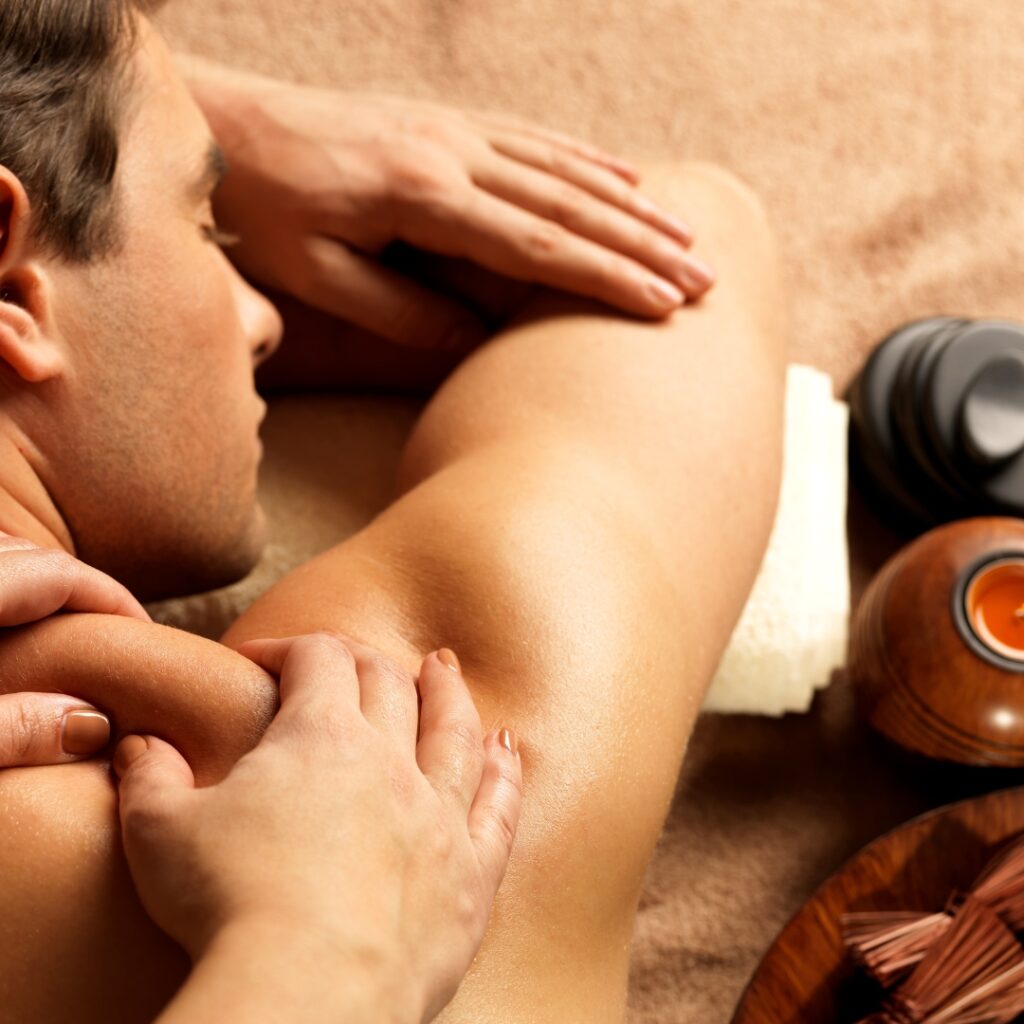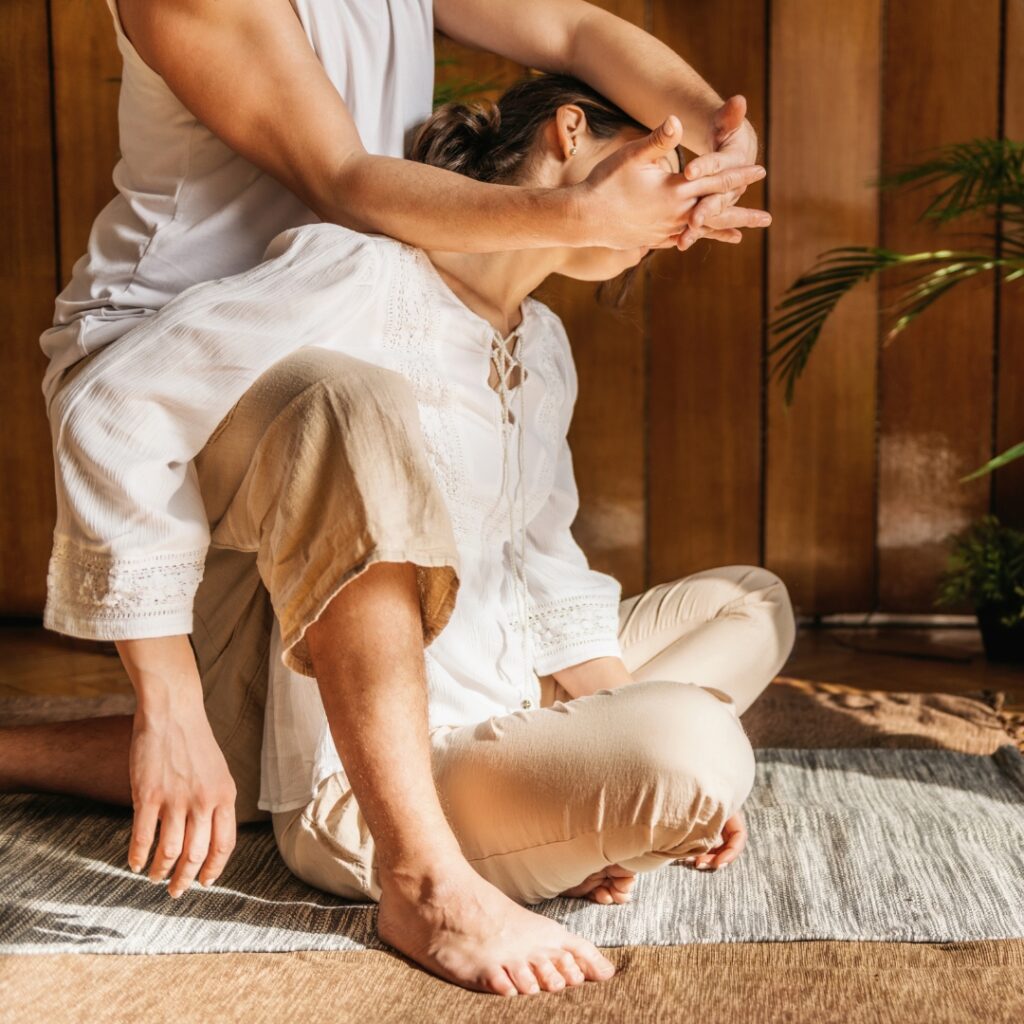Learning Thai massage is not just about mastering a therapeutic skill—it’s an immersive journey into the heart of Thai culture and tradition. Thai massage is deeply intertwined with Thailand’s history, spirituality, and health practices, making it a unique way to connect with the country’s cultural essence. Here’s why learning Thai massage is the perfect way to connect with Thai culture and tradition:
1. A Rich Cultural and Spiritual Heritage
- Historical Roots: Thai massage has been practiced for centuries, originating from the traditional healing practices of Thai monks and influenced by ancient Indian Ayurvedic techniques, Chinese medicine, and Buddhist philosophy. Learning Thai massage allows you to tap into this rich historical and spiritual legacy, understanding how healing was an integral part of Thai culture long before modern medicine.
- Buddhism and Spirituality: Thai massage is based on the concept of energy lines (called Sen lines), similar to acupuncture or acupressure in Chinese medicine. The belief is that energy flows through these lines, and massaging them restores balance and promotes healing. By learning Thai massage, you engage with the spiritual aspects of Thai culture, which often includes meditative practices and respect for energy flow within the body.

2. Holistic Approach to Wellness
- Mind-Body Connection: Thai massage is not just a physical practice; it’s a holistic one that emphasizes the balance of mind, body, and spirit. It incorporates elements of stretching, acupressure, and deep tissue work, often with yoga-like stretches that improve flexibility and relieve tension. This reflects Thailand’s broader cultural emphasis on holistic health, which focuses on maintaining a balanced lifestyle through physical, mental, and spiritual well-being.
- Energy and Balance: The practice is rooted in the belief that health is a reflection of the balance of energies within the body. Learning Thai massage provides insight into how traditional Thai medicine views health—not just as the absence of illness, but as the harmonious alignment of body and spirit.
3. Understanding Thai Philosophy and Values
- Respect and Mindfulness: Thai culture places a great emphasis on respect, both for others and oneself. This respect is woven into Thai massage techniques, which require patience, mindfulness, and a deep connection with the person you’re working on. By learning the practice, you not only gain a physical skill but also develop a profound respect for the cultural values of humility, compassion, and mindful attention to others.
- The Art of Giving: In Thailand, giving and helping others are highly valued virtues. Thai massage is often seen as a form of giving back to others, a way to heal and support the community. By learning this skill, you are not only helping others physically but also engaging in an act of kindness and service that aligns with Thai values.
4. A Connection to Nature and Traditional Remedies
- Herbal Remedies and Natural Elements: Thai massage is frequently complemented by herbal compresses, essential oils, and other natural healing elements that are often sourced from local herbs and plants in Thailand. By studying Thai massage, you connect with Thailand’s rich traditions of using nature for health and healing. You’ll gain an appreciation for the natural elements that are part of daily Thai life and traditional medicine.
- Natural Healing: Thai massage focuses on the body’s innate ability to heal itself through natural methods. Learning this practice connects you to nature’s rhythms and its healing powers, reflecting Thailand’s belief in the healing power of the earth.
5. Immersing in Thai Culture and Practices
- Traditional Learning Environment: Many Thai massage courses are taught in traditional settings such as temples or wellness centers in Thailand, which offer a truly immersive experience. Learning Thai massage in this context allows you to experience the surrounding environment, from the peaceful surroundings of a temple to the culturally rich atmosphere of a Thai spa. You can immerse yourself in the local language, customs, and daily rituals, making the experience both educational and culturally enriching.
- Understanding Local Rituals: As you study Thai massage, you’ll also be introduced to other elements of Thai culture, such as the traditional greeting, the wai, or the importance of songkran (the Thai New Year), and its connection to purification and renewal. These practices and rituals add context and deepen your understanding of Thai massage as a cultural phenomenon.
6. An Ancient Practice Still Relevant Today
- Timeless Tradition: Thai massage has survived centuries of change and remains a beloved part of Thai life. Its endurance reflects its relevance and importance in Thai culture. By learning Thai massage, you connect not only with the past but also the present, as it continues to be practiced across the world as a modern wellness technique.
- A Global Tradition: Over the years, Thai massage has spread beyond Thailand, becoming a global practice. But by learning it in Thailand, you experience it in its most authentic form. This direct connection to its roots enhances your understanding of its significance in Thai culture.

7. Building a Connection with Thai People
- Cultural Exchange: Engaging in Thai massage opens doors to learning from local practitioners who have honed their craft over many years. This creates an opportunity for cultural exchange, as you not only learn from them but also share your own experiences and insights. This exchange strengthens the connection between you and the local Thai community.
- Deep Respect for Thai Craftsmanship: By learning the techniques and history behind Thai massage, you gain a deep appreciation for the skill and artistry involved in the practice. You begin to see it not just as a physical technique but as an essential part of the cultural fabric of Thailand.
8. Mindfulness and Personal Growth
- Self-Reflection and Meditation: Thai massage requires a calm and mindful presence, both for the person receiving the massage and the one performing it. Learning to focus on the flow of energy and the rhythm of the body aligns with Thai Buddhist practices of meditation and self-reflection. This emphasis on mindfulness offers personal growth as you develop patience, awareness, and the ability to connect more deeply with others.
- Healing Through Touch: The physicality of Thai massage—where the practitioner uses palms, thumbs, elbows, and even feet—requires focus and care. It teaches the practitioner to be attuned to the needs of the client, which translates into personal growth in terms of patience, empathy, and compassion.
Conclusion
Learning Thai massage is more than just a skill—it’s an invitation to embrace and understand Thai culture on a deeper level. It’s a practice that embodies the wisdom of centuries of tradition, combining elements of healing, spirituality, natural remedies, and cultural respect. By studying Thai massage, you not only learn a unique and valuable technique, but also gain insight into the philosophy, values, and history that have shaped this beloved practice. Whether you pursue it for personal enrichment, professional development, or to deepen your cultural understanding, Thai massage offers an unparalleled connection to Thailand’s heritage and way of life.

